#AutonomousVehicles
New U.S. Bill Would Update Automotive Rules, Allowing for Non-human Drivers
When the automobile came into its own, there wasn’t really a place for it. Roads had been reserved for foot traffic and horses for hundreds of years before the invention of the internal combustion engines. Pedestrian injuries were high until they were partitioned onto the sidewalk. Likewise, it was some time before the millions of horses were be rounded up, placed into a giant pit, and shot to death by 20th-century motorists.
However, the industry didn’t really take safety into account until Ralph Nader wrote Unsafe at Any Speed and holding automakers accountable for safety suddenly became fashionable — helping America pass the National Traffic and Motor Vehicle Safety Act in 1966 and subsequent legislation. Granted, vehicular fatality rates still fell dramatically between 1925 and 1965, but the regulatory influence didn’t skyrocket until after Nader’s analysis of the industry.
With autonomous vehicles positioned to change the way we “drive,” the long-established and ever-growing rulebook may need revisions. In July, a collective of automakers, suppliers, engineers, and consumer groups, calling themselves the Coalition for Future Mobility issued a statement urging Congress to consider legislation it deemed “critical to the United States continuing to be a place of innovation and development for the life-saving technologies.” Fast forward to August, and there is already a bill on the table.
Elon Musk Presses for Total Ban on Autonomous Weapons, Self-driving (Potential) Killer Cars Still Okay
The United Nations recently voted to begin formal discussions on autonomous weapon systems, with 116 of the world’s leading robotics and artificial intelligence experts responding by calling on governments to simply ban them.
The coalition, fronted by Tesla’s Elon Musk and Alphabet’s Mustafa Suleyman, claims this is a dark road the world doesn’t want to go down. Aimed at the International Joint Conference on Artificial Intelligence, a letter from the group warned the U.N. not to usher in the “third revolution in warfare” (following gunpowder and nuclear arms).
While I’m not about to suggest there aren’t serious risks involved with weaponizing thinking machines, it does seem lightly hypocritical for Musk to condemn them over a lack of trust while continuing to champion self-driving cars. Apparently, technology experts feel a Terminator scenario is thoroughly unacceptable but a potential Maximum Overdrive situation is just fine.
Money-hungry States Lining Up to Tax Self-driving Cars (Just Like EVs)
There’s few things people living in the U.S. can agree on, but one of those things is the state of American road infrastructure. For the most part, it sucks. Eisenhower’s long gone, but his network of interstate highways, plus the spiderweb of two-lane roadways cross-crossing every corner of America haven’t grown better with age.
Meanwhile, the U.S. federal gas tax remains unchanged since its last hike in 1993. Still locked at 18.4 cents per gallon, the infrastructure funding shortfall created by the static federal tax is spurring states to pass their own gas tax increases. Michigan, California, and — controversially — New Jersey are among the most recent examples.
Still, boosting prices at the pumps only works if drivers still visit those pumps. What of the coming self-driving car wave, the vanguard of which are high-tech electric vehicles piloted by mere humans? Enter the taxman and his slim book of ideas.
Ford CEO Sees a Future for Hands-on Driving, but a New Patent Shows the Company Hedging Its Bets
If you believe certain segments of the media, we’ll soon be able to avoid the drudgery of turning a steering wheel, pressing and releasing pedals, and — gasp! — shifting gears.
The inevitable onset of self-driving vehicles, tech aficionados and urbanists tell us, will bring traffic fatalities down to zero, somehow remove all congestion from the road, and turn our lives into a never-ending sojourn of blissful tranquility. Never again will you take that aimless and unprogrammed late-night drive, just for the hell of it. Never again will you bother with buying and owning a car. Automakers will simply turn their driverless cars loose, emptying driveways while filling streets with hands-off ride-sharing pods.
Not so fast, says Ford’s newly minted CEO.
Autonomous Features Are Making Everyone a Worse Driver
Autonomous vehicles are about as polarizing a subject as you could possibly bring up around a group of car enthusiasts. Plenty of gearheads get hot under the collar at the mere concept of a self-driving car. Meanwhile, automotive tech fetishists cannot wait to plant their — I’m assuming — khaki Chinos into the seat of an autonomous vehicle and enjoy a coffee without the hindrance of having to actually drive the thing to their destination.
I’ve previously discussed how autonomous cabs will become unparalleled filth-boxes, destined for salacious behavior. Because without driver oversight, why not sneeze into your hand and wipe it on the seat back? Now, surveys are beginning to indicate privately owned computer-controlled cars will be subject to similar activities — with some drivers suggesting they’ll have no qualms about having sex, drinking booze, or binge eating behind the wheel.
That’s the future we’re being promised, but a lot of autonomous features have already made it into modern production cars. Word is, they’re starting to make us terrible drivers. It’s enough to worry automakers to a point where they’re considering implementing an array of systems to more actively encourage driver involvement on a platform that’s designed to do the opposite.
Get ready to drive your self-driving car.
Saying What's Popular: Suppliers Claim Automakers Are Overselling the Future of 'Mobility'
Suppliers have begun putting automotive companies on blast for overly ambitious mobility claims. While self-driving cars are definitely en route, manufacturers have ramped up their arrival time and omitted the necessary pit stops to win favor with investors or the general public. Meanwhile, parts suppliers have been frank on the matter — explaining they know when autonomous cars are really coming because they’ll be the ones providing the tidbits that make them work.
Don Walker, CEO of Magna International, one of the world’s largest OEM parts suppliers, suggests automakers may even be misleading their customers. “A full autonomous vehicle is a long way off for lots of reasons, because of legislation, class-action lawsuits, all the complexities and the costs associated with it,” the executive said.
Speaking Wednesday at the 2017 Center for Automotive Research Management Briefing Seminars, Walker also took umbrage with the popular claim that electric vehicles could comprise around 25 percent of the new market by 2025. Instead, he claims EVs will only account for 3 to 6 percent of the global market within that timeframe — a figure predominantly dependent on how swiftly the highly regulated Chinese market grows.
Elon Musk Just Called A.I. the 'Greatest Risk We Face as a Civilization'
Tesla Motors CEO Elon Musk has been a longtime proponent of artificial intelligence, saying it has applications that far exceed his autonomous car projects. But he’s also issued numerous warnings, stating that it must be handled safely and responsibly. Now he’s heralding it as a humankind’s great destructor.
Speaking Saturday at the National Governors Association in Rhode Island, Musk told the crowd A.I. is a “fundamental risk to the existence of human civilization.” Urging the gathering to implement effective governmental regulation to ensure public safety. “Right now the government doesn’t even have insight,” Musk said. “Once there is awareness people will be extremely afraid, as they should be.”
FCC Makes Room on the Airwaves for Autonomous Vehicles
Despite the Federal Communications Commission making a mess of net neutrality right now, it remains capable of serving corporate interests and the general public simultaneously. On Thursday, the FCC quintupled the allocation of the radio spectrum used for motor vehicle and aircraft radar systems to help avoid crashes.
While the majority of autonomous cars also use laser guidance and a complex network of cameras to navigate, radar remains an integral component. Presently, the 1 GHz of spectrum set aside in 1995 has been sufficient for self-driving vehicles using adaptive cruise control or automatic emergency braking. But we’re about to enter an era of connected cars that will be required to “speak” to one another, and those vehicles will need plenty of space to talk — 5 GHz of bandwidth, to be precise.
Self-driving Taxis Will Become the Most Disgusting Spaces on Earth
With the entire automotive industry looking toward a future of driverless mobility, commercially owned self-driving taxis seem poised to be on the frontline of tomorrow. However, nobody seemed to realize that these vehicles will eventually become little more than mobile toilets.
Animals are universally disgusting and humans are no exception. While we’ve mastered land, air, and sea, consider the spaces we occupy while we traverse those expanses. Rental cars are returned filled with candy wrappers, spilt soda, and human hair. Uber vehicles are routinely vomited in. The subway is a haven for disease. Airplane interiors experience havoc within the first hour of a flight as the worst of us begin defecating into the seats, too lazy and weak to control ourselves.
Autonomous taxis aren’t likely to endure better treatment. Without a driver present, the urge to have drunken sex will be far too strong — and those odds only increase when you add a second occupant to the equation. With nobody watching, we’ll leave half-consumed hamburgers and cans of sweetened tea on their floors that will roll around and turn the carpet into a sticky magnet for larger pieces of garbage.
Waymo Drops Most Patent Claims Against Uber, Animosity Still Strong
Alphabet Inc.’s autonomous car division Waymo, formerly Google, abandoned three of four patent-infringement claims in its lawsuit against Uber Technologies Inc. in a surprise move on Friday.
Earlier, U.S. District Judge William Alsup specifically asked Waymo to narrow its more than 100 trade secrets claims to fewer than 10 if they ever wanted to place them in front of a jury. During a June 7th hearing, he also said, “I want to reiterate to the plaintiff here that you should think a lot about just dropping the patent part of this case.”
Waymo listened and dumped the majority of its patent claims to focus more heavily on the trade secret issues surrounding the 14,000 files stolen by ex-employee Anthony Levandowski — which is, perhaps, the only thing the two companies can agree upon. Uber is glad to see the focus shift back onto Levandowski, who has been at the core of the case since day one. Now it only has to prove it didn’t pay for access to the data instead of spending time differentiating its own designs from Waymo’s.
Tesla's Autopilot Alerted Driver to Retake Wheel Seven Times Prior to Fatal Crash
The National Transportation Safety Board has finally concluded its investigation into a May 2016 crash in Florida that resulted in the death of 40-year-old Joshua Brown. The ex-Navy SEAL’s Tesla Model S was operating in Autopilot mode when it collided with a semi trailer, raising speculation that the semi-autonomous driving feature was the reason for the accident.
While Tesla has repeatedly called the system a lane-keeping “assist feature” and suggested drivers always keep their hands on the wheel, consumer safety groups have urged the automaker to improve it.
An earlier investigation by the National Highway Traffic Safety Administration stated in January that the Autopilot software in Brown’s car did not have any safety defects. However, the NTSB stated that data acquired from the vehicle’s computer indicated that neither the vehicle nor its operator made any attempt to avoid the truck. It also specified that the vehicle had issued seven warnings for Brown to retake the wheel.
In the 37 minutes leading up to the fatal crash, the report said the car detected hands on the steering wheel for a total of 25 seconds.
Republican Proposal Would Block States From Setting Self-driving Rules
A coterie of Republican officials believe individual states should be forbidden from governing themselves in regard to autonomous vehicles. Only in its commencement, a new U.S. House proposal claims states would not be within their rights to mandate the design or testing of self-driving cars.
If made law, the proposal would eliminate the need for automakers to acquire any pre-market approval from federal regulators. While that sounds like a free-for-all ripe for accountability issues, several states already have laissez-faire or highly supportive attitudes when it comes to autonomous vehicles, though others could become serious headaches for automakers hoping to swiftly get the technology on the road.
The 45-page legislative draft includes 14 bills and would designate the U.S. National Highway Traffic Safety Administration as the primary agency for regulating self-driving cars. It’s aggressively pro-business and, despite being penned by Republicans, has managed to achieve some bipartisan support.
Are Connected Drones the Next Automotive Renaissance or a Pipe Dream?
Now that automakers have more or less mastered the ability to assemble competent transportation for the masses, the quest to build a better car has branched out into strange places. Connectivity is one of the burgeoning frontiers of automotive achievement and its threshold for greatness continues to be raised. With navigation and phone integration handled, manufacturers have begun seeking other ways to interconnect vehicles with all manner of devices. Occupants can now benefit from onboard GPS, Wi-Fi, and — more recently — smart home devices like Amazon’s Echo.
Drones could be next.
While it sounds almost comically implausible, several automakers and suppliers have begun toying with the idea of equipping specific models with drones. Last September, Mercedes-Benz introduced the idea that its delivery vans should have the option of being equipped with package-toting quadcopters as part of a five-year-plan to terrify suburbia. FCA designed a concept Wrangler for the Easter Jeep Safari that included a roof-mounted landing pad for a recreational drone. Mitsubishi Electric is showcasing its new FLEXConnect.AI infotainment platform with drone functionality.
Apple CEO Dubs Self-driving Car Program 'the Mother of All A.I. Projects'
Apple has been perpetually flip-flopping in terms of developing autonomous vehicles. In 2014, the company was rumored to have begun work on an autonomous electric car, codenamed “Project Titan,” with hundreds of employees devoted solely to its development.
Management issues and logistical problems impaired its progress, leading Apple to abandon the project. Since then, Bob Mansfield has fronted a renewed effort to focus on building an autonomous driving system rather than a complete car. At least, that was everyone’s best guess, as the company has been semi-secretive about its mission since day one.
That changed on Tuesday, when CEO Tim Cook confirmed that Apple does indeed have a self-driving development program. The chief executive even went so far as to call it “the mother of all A.I. projects.” That’s quite the claim to make, considering making the tech work on a car is half the battle and Apple has no practical experience building an autonomous vehicle.
Uber Gains a Rival in the World of Self-driving Trucks
Waymo has announced it has begun working on self-driving trucks, possibly to further annoy its chief industry rival, Uber Technologies. On Thursday, the Alphabet-owned development team said it was venturing into autonomous trucking, only two weeks after UberFreight’s official launch.
While the ride-hailing giant has been working on self-driving trucks since its acquisition of Otto last year, the timing of the two more recent announcements are suspiciously close.









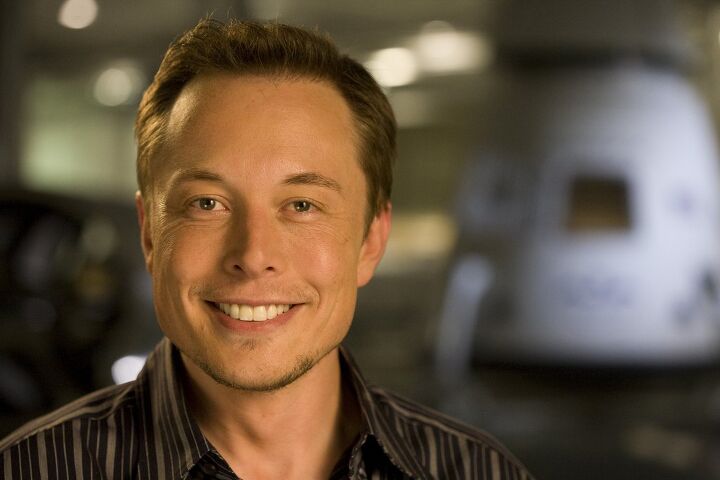
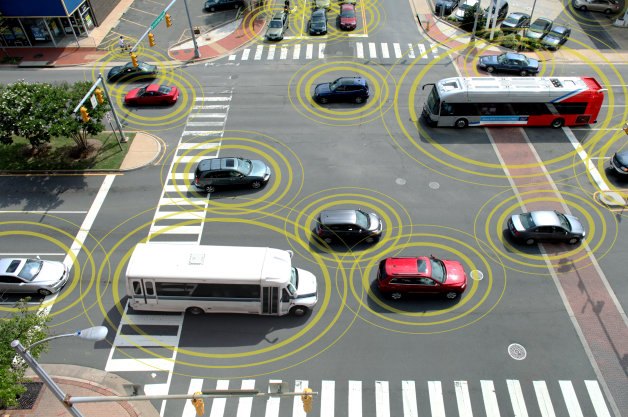

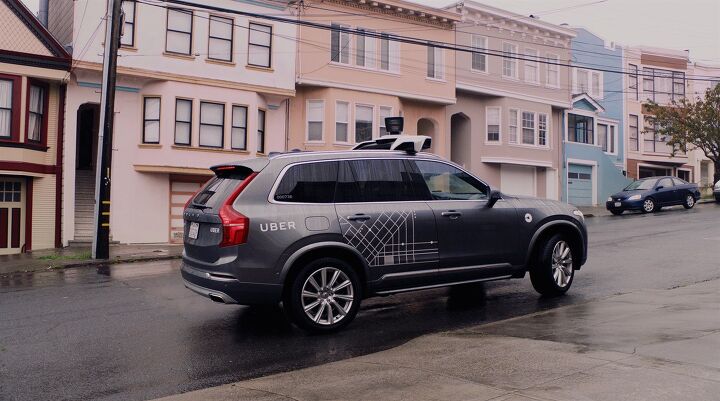
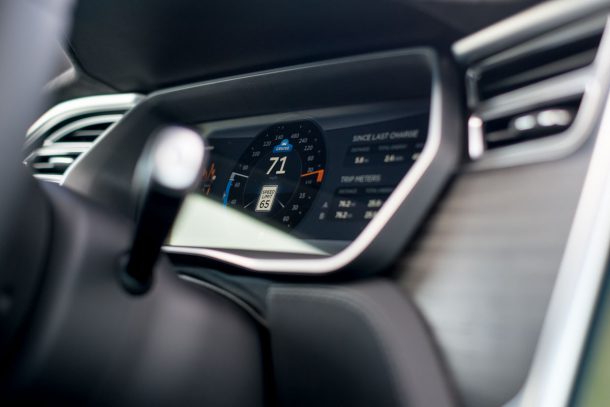


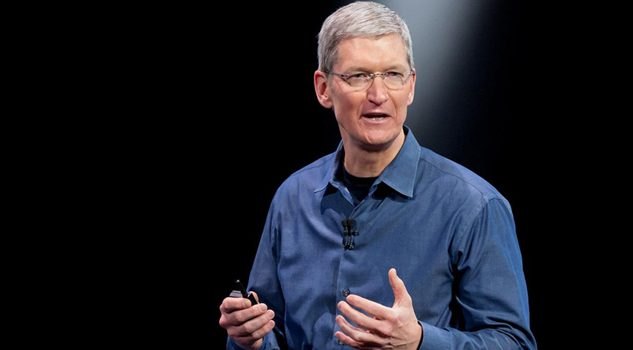













Recent Comments